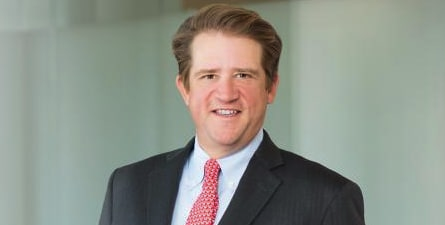🤓Notice of Appearance: Ted Gavin, Managing Director & Founding Partner of Gavin/Solmonese🤓
For those who are new to us, our “Notice of Appearance” feature provides an opportunity for a professional in the field of restructuring to provide us all with some perspective about the markets generally, the industry, and professionalism. This week, we dialogued with Ted Gavin, Managing Director & Founding Partner at Gavin/Solmonese.
PETITION: There are a number of chapter 22s on the horizon. We've been poking fun at the "successful retail chapter 11" designation but, really, it is tragic and the process is failing. What do you think this is attributable to and what can be done by all involved -- lawyers, advisors, bankers, investors -- to avoid them in the future?
These are all unforced errors born of greed disguised as impatience in the form of short timelines that are driven by the immovable post of restrictive budgets. All of these chapter 22s have the common trait of having used the first filing to strip off debt, but the efforts to actually fix the underlying company were either insufficient (in some cases) or outright absent. If the company couldn’t meet its operating nut, stripping off some debt just gets you back to the same place eventually. If you’re not taking the time provided by the bankruptcy to fix the damn company, you’re just spending money for what will, in all likelihood, turn out to be a broken investment.
PETITION: The Creditors' Committee pitch process is becoming an inside game. UCC Lawyers are hiding behind UCC FAs and company-side FAs are sharing advance peaks with UCC FAs to give them a first-mover advantage. What gives?
A lot of this can be blamed on Lawyers’ Rule of Professional Conduct 7.3 (the prohibition against solicitation) and how it hasn’t scaled to deal with modern practice. The other issue is the inconsistency in practice within the U.S. Trustee Program – not only from Region to Region, but from office to office and, in some cases, from staff attorney to staff attorney. What is commonplace in one jurisdiction is impossible to accomplish in another because of this. Are there lawyers with undisclosed pecuniary interests tied to FA firms? Of course there are. Do some FAs shill for law firms while acting as attorney-in-fact for creditors without disclosing some other financial interest in the outcome of that efforts? Of course they do. So do lawyers. It happens. It’s indefensible.
Want it to stop? Change Rule 7.3 so it reflects the committee organization process or form all committees by mail and do away with the “in the room” beauty contests so proxies are no longer necessary and having a hand-holder in the room to move the process in the way they want becomes a moot exercise. Easier said than done, but still doable if the practice decides to get serious about it.
PETITION: There seems to be new independent director candidates popping up every day. Is this good, bad, or neutral?
It depends. When an independent director is really independent and is there to oversee the process with unfettered autonomy and no fear of reprisals, it’s fine – good, even. When the independent director’s future business depends on finding that nothing untoward happened, and the same individual keeps getting dropped in by the same law firm, it’s a problem. Independent directors should be viewed the same way we view expert witnesses – if you keep showing up for the same law firm, you’re not independent.
PETITION: Restructuring advisory shops seem to be proliferating. What can a financial advisor do in today's crowded market place to separate herself/himself from the crowd?
Be easy to work with. Be about the work. Be proactive. Be generous with your experiences and knowledge. Make your referrals look like effing geniuses for having referred you. Know more than the next shop and be able to do something with it that gives your side an edge. There’s a reason I went to law school, and it wasn’t the scintillating debate and the excitement of reading the Blue Book.
PETITION: What book has helped prepare you to be the best professional you can be?
Hue 1968 by Mark Bowden. It’s an incredibly compelling analysis of prolifically bad decision-making that became the turning point of America’s involvement in Vietnam. It’s a walk-through, from the ground, of the event that changed our national dialog about our purpose in the war and, when it was over, America would never again fully trust its leaders.


